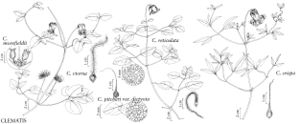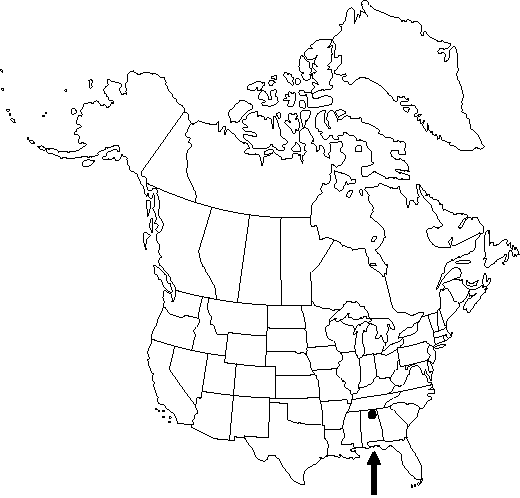Clematis morefieldii
Ann. Missouri Bot. Gard. 74: 665. 1987.
Stems viny, to 5 m, cobwebby-tomentose and pilose. Leaf-blade 1-pinnate; leaflets 4-10 plus additional tendril-like terminal leaflet, narrowly to broadly ovate, unlobed or 2-3-lobed, 3.5-10 × 2-6.5 cm, thin, reticulate; surfaces abaxially densely silky-pilose, not glaucous. Inflorescences axillary, 1-5-flowered; bracts at or near base of peduncle/pedicel. Flowers urn-shaped; sepals pinkish, suffused with green, oblong-lanceolate, 2-2.5 cm, margins not expanded, thick, not crispate, tomentose, tips acuminate, slightly spreading to short-reflexed, abaxially densely silky-pubescent. Achenes: bodies silky-pubescent; beak 3-3.5 cm, plumose.
Phenology: Flowering spring–early summer.
Habitat: Open woods among limestone boulders
Elevation: 200-300 m
Discussion
Of conservation concern.
Clematis morefieldii is known only from limestone uplands east of Huntsville, Madison County, Alabama.
From all variants of the closely related Clematis viorna, C. morefieldii differs in the cobwebby tomentose as well as villous pubescence of its stems, and in having bracts at or very near the base of the peduncle rather than well above the base.
Selected References
None.

